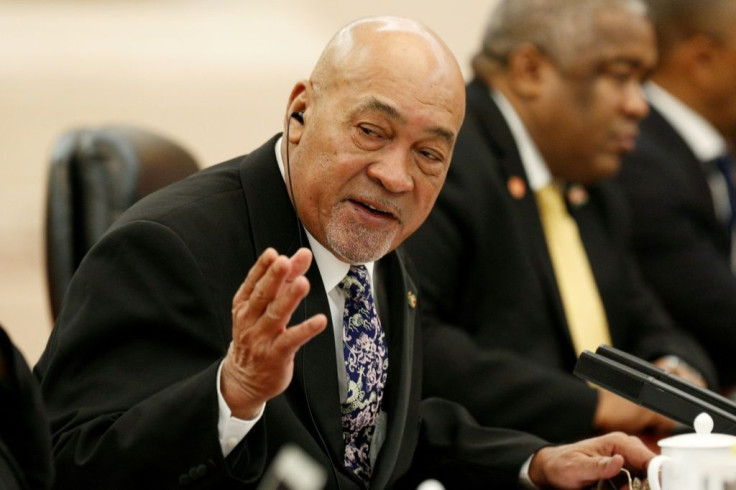Suriname President's Future Depends On Legislative Election

Suriname will hold legislative elections on Monday that are crucial to convicted murderer President Desi Bouterse's hopes of staying in power for a third term.
Under Suriname's political system the president is elected by the 51 members of the National Assembly, who are up for re-election on Monday.
The election in the South American country of 600,000 takes place despite a partial lockdown imposed to prevent the spread of the novel coronavirus and amid various corruption scandals and a dire economic outlook.
If Bouterse's National Democratic Party (NDP) retains its narrow majority in the legislature, the 74-year-old former military dictator is likely to remain in power.
But Bouterse is a controversial figure.
Last year he was sentenced to 20 years in prison by a military court for carrying out executions during a previous military dictatorship.
He appealed his conviction and the case was postponed until June due to the coronavirus pandemic.
Bouterse first took power in a 1980 coup and in 1982 allegedly rounded up and executed 15 political opponents, including lawyers, journalists and businessmen, in an incident known as the "December killings."
In 1999 Bouterse was sentenced to 11 years in prison by a Dutch court for cocaine smuggling, a charge he denies.
After almost a decade out of power, he was first elected president in 2010, which gave him protection from an Interpol arrest warrant.
But it didn't save him from being convicted over the 1982 massacre.
And even if he is re-elected, Bouterse would still go to jail if he doesn't win his appeal.
Surinamese voters will elect 51 legislators for a five-year term, as well as 118 district and 772 local representatives.
The 51 lawmakers will then elect the president, with a two-thirds majority needed to win.
The ruling NDP is campaigning on its strong track record of substantially increasing social welfare, introducing mandatory health and pension insurances, carrying out major infrastructure projects and granting property to the landless.
Opposition parties, though, accuse the Bouterse administration of numerous corruption scandals and have warned that the country cannot afford the NDP's spending.
Bouterse's chief rival is legislator Chandrikapersad Santokhi of the Progressive Reform Party (VHP).
Santokhi is a former justice minister and police commissioner who investigated the "December killings" and unsuccessfully ran against Bouterse in the 2010 and 2015 presidential races.
The financial crisis has been the main campaign issue in Suriname, which exports oil and gold.
The Association of Economists in Suriname (VES) has called upon the Surinamese to "vote for good economic governance," accusing the current administration of saddling the country with debt.
"In 2019, twice as much money was spent by the government than it received," VES Secretary Steven Debipersad told AFP.
"We have (a) budget deficit of seven billion Surinamese Dollars (US$930 million)," said Debipersad.
"Our country has borrowed so much that repayment is in danger."
Ratings agency S&P says Suriname's "worsening economic, fiscal, and financial challenges" mean it risks defaulting on its debt.
The government has also been plagued by a series of corruption scandals, including two last January involving the central bank.
Another key player in the election is the General Liberation and Development Party (ABOP) led by Ronnie Brunswijk, a former jungle rebel leader who fought a civil war against Bouterse in the late 1980s.
Brunswijk mostly represents the Maroons - descendants of African slaves -- in diverse Suriname where citizens often vote along ethnic lines.
Brunswijk has teamed up the Pertjajah Luhur party (PL) led by Paul Somohardjo that represents people of Indonesian origin.
Some 380,000 people are registered to vote on Monday with safety measures in place to help prevent the spread of COVID-19.
An 11 pm to 5 am curfew will be lifted on Sunday and Monday to facilitate the election.
It will be observed by the Organization of American States and Caribbean Community.
Initial results are expected on Tuesday with a formal declaration likely within a month.
The new president should be sworn in before August 13.
© Copyright AFP {{Year}}. All rights reserved.





















